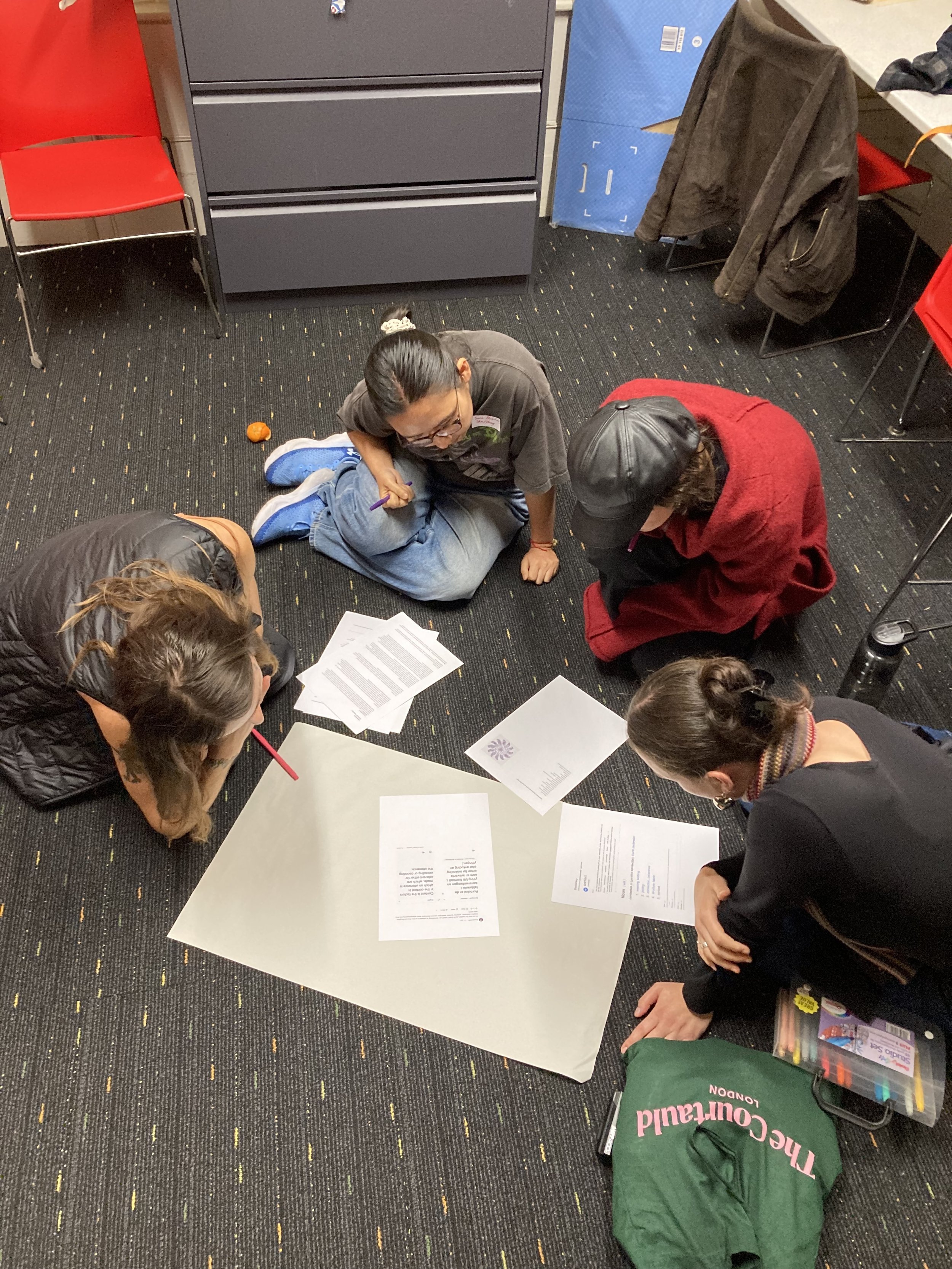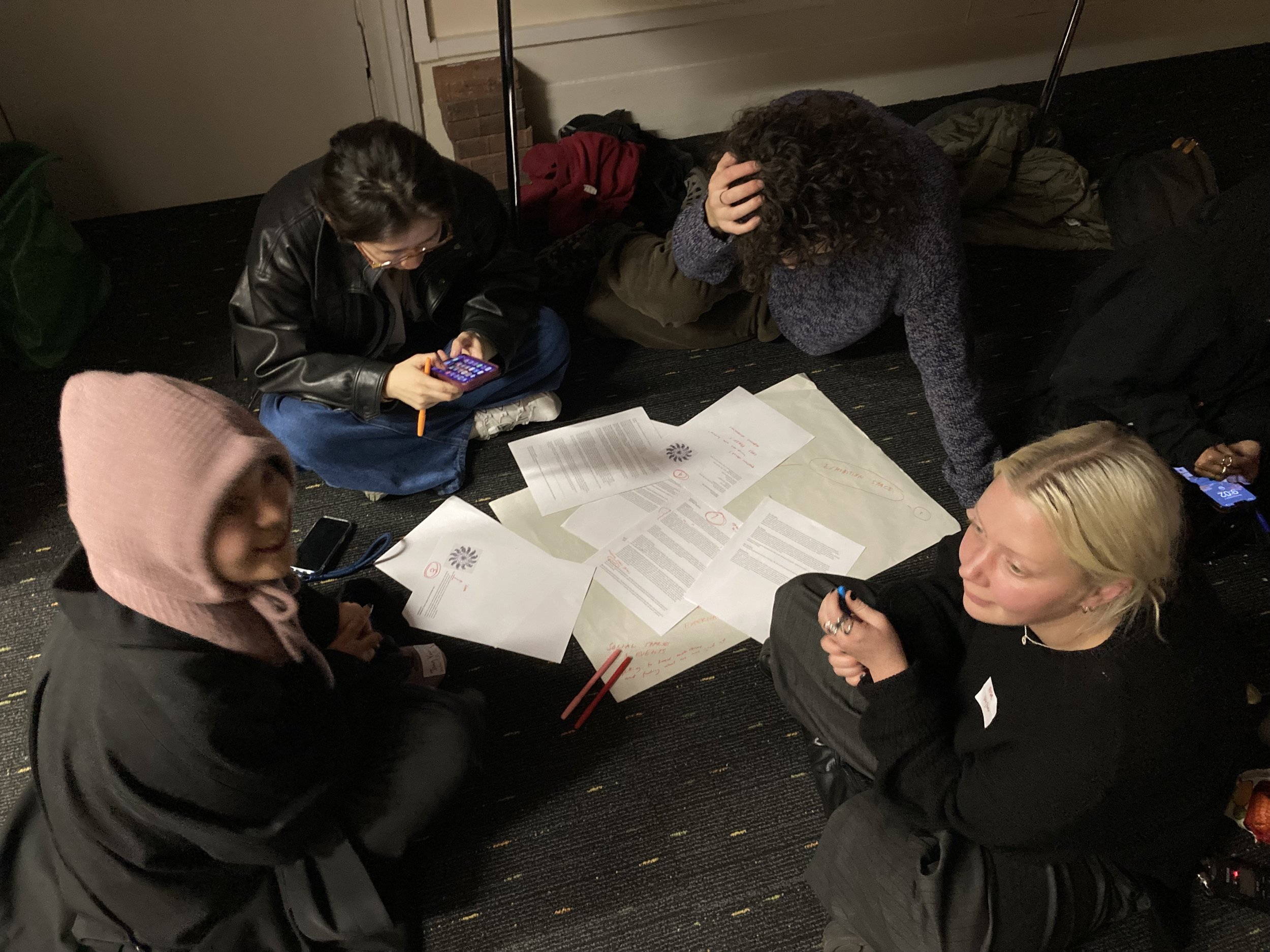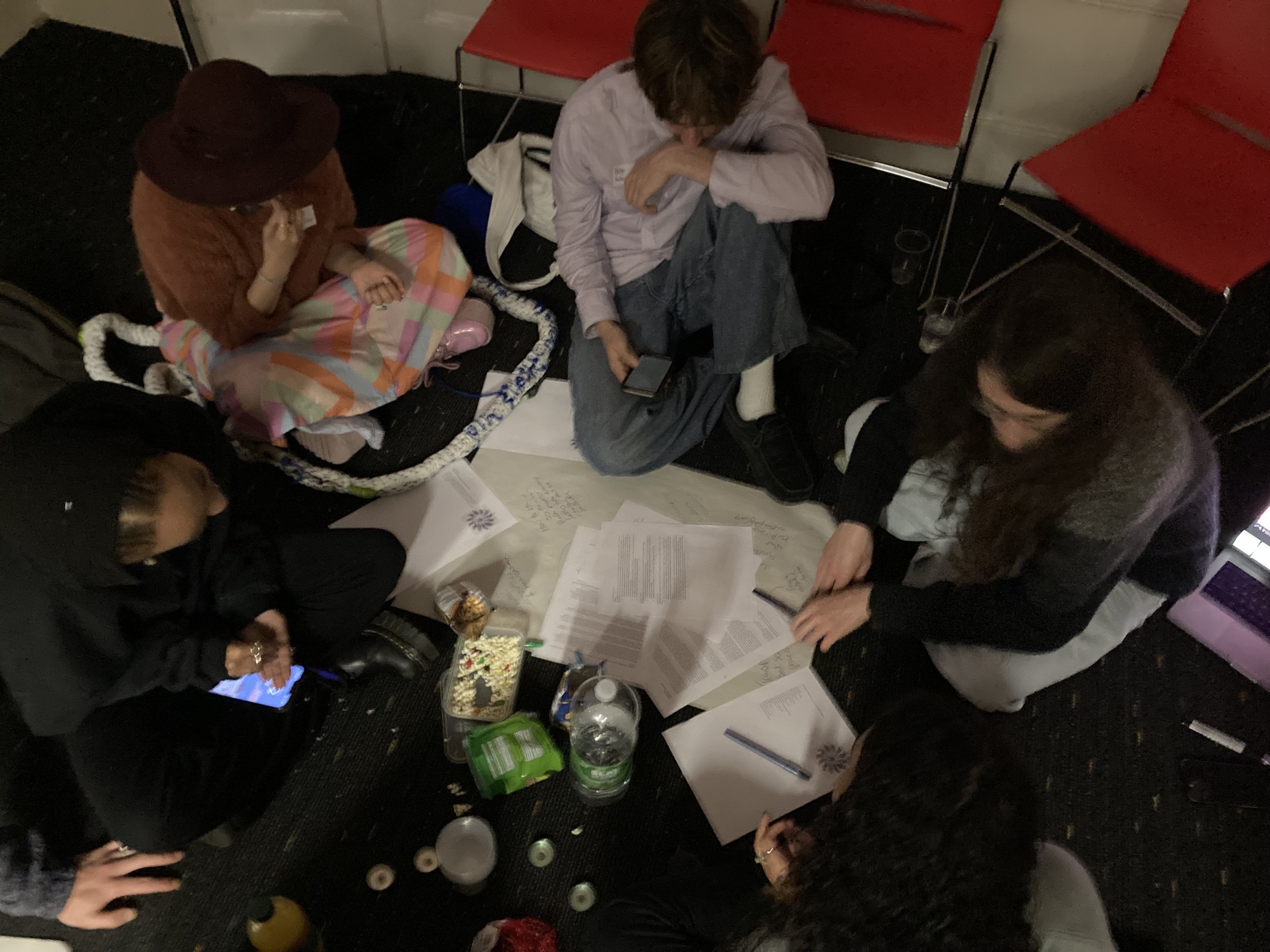KONTEKST MANIFESTO
KONTEKST*; a declaration of:
an open, multi-sensory collective of anthropologists, filmmakers, artists, and storytellers committed to reshaping the way we encounter and produce ethnographic images, stories, and sensations.
*pronounced “context”
The ‘ethnographic’ refers to the study of human experience and cultures. It is a field historically entangled with the colonial traditions of capturing and contextualising ‘objects’ of study to the benefit of imperial powers.
These histories present us with the potential violence of context, according to who gets to create or define it.
It is here we will begin our line of investigation, engaging critically with pre-existing systems of ‘factual’ representation and knowledge production, on our way to decolonising and reworlding disciplines of truth-making.
Our Principles:
We Are
Polyvocal and Non-hierarchical – We believe that meaning arises from a multiplicity of voices, perspectives, and narratives. There is no single truth; instead, we embrace the complexity of layered voices that tell stories from myriad standpoints.
Decolonial and Anti-Expert – Recognising that the power of representation has often been a tool of oppression, we seek to dismantle traditional hierarchies of “expertise.” Our programming aims to disrupt, not endorse, historical structures of knowledge that have perpetuated harm. To continuously decentralise knowledge, not centralise academic authority.
Class-Conscious and Holistic – We believe that all work is shaped by material realities and social structures, and we bring this awareness into our selections and discussions. Our choices reflect a commitment to highlighting works that challenge capitalist structures and uplift stories that might otherwise remain untold.
We Value
Embodiment and More-than-Human Relations – Our works are not only seen or heard but are felt, smelled, touched, tasted. This experiential dimension is essential to our collective as we believe relational importance is often lost in data-driven or traditional academic writing and media. By emphasising other senses, we explore how embodied knowledge can reveal experiences that transcend words alone. Our entanglement with and place within ecosystems are what underpin our very existence, and we are curious to investigate our own and societies’ dependency on, and relationship to, beyond-human entities and lives.
Regenerative Collaboration - Anonymised feedback channels provide creators with unfiltered insights into their work’s reception, fostering growth through open dialogue and bringing collaboration and polyvocality to the core of our creative practice. We hope that our platform offers a space for conversations to start, that can perhaps also continue elsewhere. We acknowledge that both work and people constantly change and widen, and we believe that we are better when open to projects that are also works-in-progress.
We Hold
Safe Space for Critical Dialogue – KONTEKST wants to build a safe and inclusive space where disagreement is stimulating and discussion is encouraged. Discrimination in any form — racism, sexism, homophobia, transphobia, ableism, classism, casteism, + — is never tolerated.
Our Mission:
We believe in the critical, transformative potential of multi-sensory ethnography.
Through a collaborative platform, we seek to elevate the voices of emerging critical makers and storytellers not only by exhibiting work but by fostering conversations—through live events, an open-access online archive, and regular free submissions that welcome artists, anthropologists, and creatives alike.
For us, this collective space offers a momentary knotting-space shared among creators and the public, a site where new ideas can resonate and grow.
We also want to make critical anthropological knowledge accessible to those who have never heard of the discipline and who are not familiar with theoretical concepts and academic jargon - we acknowledge that long text-based articles may pose an accessibility barrier. Our focus on multi-sensory ethnography is one outcome of this thinking.
Our Sensory Anthropology:
Anthropology, taken broadly, is the study of people; how we live and who we are.
Anthropological research is traditionally undertaken using forms of scientific, empirical methods - making observations about the people being researched, and then drawing interpretations from these observations. It has been a tool of building understanding between people, and an understanding of us as individuals.
Crucially however, it has also been a way for colonialist and capitalist regimes to impose eurocentric, western forms of knowledge production across the world, and to cement hierarchies based upon race, class, caste and gender.
For these reasons we value anthropology but also always strive to be mindful of how it can be used to cause harm, even by people with good intentions.
Sensory anthropology (sometimes used synonymously with ‘visual anthropology’) defines our dual approach to an anthropology of the sensory and a sensual exploration of the anthropological - a road less travelled than that of systematic, purely empiricist and textual methods; one which can nurture nuance and subjectivity. A place for languages less spoken or written; embodiment, environment and gaze. It is important to remember that sensory anthropology too can be dangerous. Mediums such as film can easily appear to be more truthful than they really are, as they intend to convey “objective” knowledge whilst not addressing their own entanglement in a larger system of (mis)representation.
As such we place sincere importance in how art-making can be a way for people to share their perspectives, their voices, their contexts. We want to work against imbalances of power and blur the division between the art-making process and the final result.
Our Context:
Context is both potential and responsibility. It holds the power to clarify or distort meaning.
Through mindful engagement, we reject the colonial and exploitative origins of “objective” or “truthful” media, seeking instead to reveal a richer polyvocality. We do this not as a top-down expert body but as an open, decolonial, anti-expert, and embodied collective that respects stories, sensations, and perspectives of all. We look forward to engaging with difference, and we are excited about ways of learning mindful translation and interpretation.
KONTEKST was formed by graduates of BA & MA Visual Anthropology degrees at Goldsmiths, University of London. We recognise that having access to academia is a privilege that often relates to one’s socio-economical and legal status, hence our mission to open this platform up to those without academic backgrounds.
Although we come from difference, we are connected in resemblance.
We believe that giving our context is important and we are always looking for ways to grow our diversity in perspectives.
Finally - why KONTEKST, not CONTEXT?
Our collective’s members come from all around the world and for many of us, English is not our first language. We chose this particular spelling to reflect that there are alternatives to an anglophone, west-centric knowledge production. There is no “default” at KONTEKST.
Through this manifesto, we invite creators, thinkers, and audiences to join us in exploring new ways of seeing and being, where context is a bridge — not a weapon — and every encounter is an opportunity to transform and be transformed.
This manifesto was originally drafted by Emelie, Arti, Sam and El, and was then presented to other members of the collective in a form of an open workshop by collectively reading it out loud and going over it as a group for feedback and approval.
We are keen to hear your thoughts about the points we included, and those which may be missing.
To give us feedback, please contact us.






